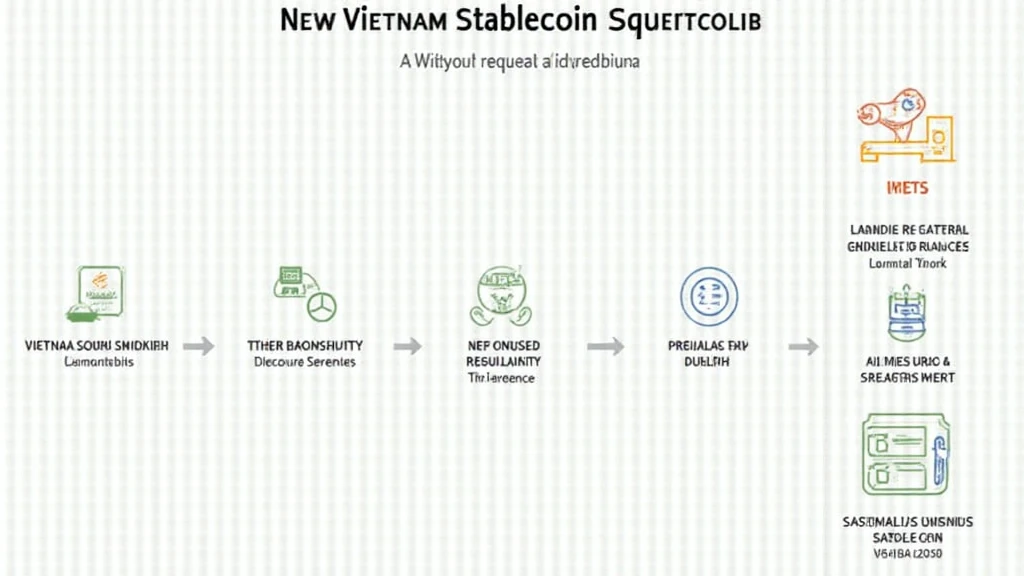
Vietnam Crypto Stablecoin Regulations: Navigating Compliance in 2025
As the landscape of cryptocurrency continues to evolve, stablecoins have emerged as a significant player within the financial ecosystem, especially in markets like Vietnam. With an estimated growth rate of 30% in crypto adoption among Vietnamese users, understanding the regulatory framework governing stablecoins is essential for staying compliant and competitive. So, what are the current regulations regarding stablecoins in Vietnam, and how should crypto platforms navigate this terrain? Let’s dive into the details.
The Rise of Stablecoins in Vietnam
Stablecoins, known for their price stability when pegged to assets like the US dollar, are gaining traction across the globe. In Vietnam, the burgeon of digital financial services has catalyzed an increased interest in these assets. According to recent statistics, over 2 million Vietnamese have engaged with cryptocurrency in the past year, with stablecoins accounting for a large portion of transactions.
- Definition: Stablecoins offer a bridge between traditional fiat currencies and the volatile world of cryptocurrencies.
- Use Cases: Users in Vietnam are primarily utilizing stablecoins for remittances, trading, and preserving value during volatility.
Understanding Vietnam’s Regulatory Environment
In recent years, Vietnamese authorities have taken a keen interest in regulating cryptocurrencies to protect investors and ensure financial stability. However, the regulation of stablecoins specifically remains a complex issue that must be addressed. In 2025, it is crucial to navigate the following aspects:

- Legal Status: Stablecoins are not recognized as legal tender in Vietnam as of 2023, but their use is legal.
- Regulatory Framework: The State Bank of Vietnam (SBV) has issued directives that affect the operations of crypto platforms.
- Future Regulations: The Vietnamese government plans to tighten regulations as crypto adoption increases.
Key Regulations Impacting Stablecoins
To ensure compliance, crypto platforms must pay particular attention to the following regulations:
1. Anti-Money Laundering (AML) and Know Your Customer (KYC)
AML and KYC regulations are vital for any financial institution, including crypto companies. Failure to comply can result in substantial fines and loss of license:
- Require users to verify their identities before engaging with stablecoins.
- Implement transaction monitoring systems to track suspicious activities.
2. Tax Compliance
As the Vietnam crypto market grows, tax authorities are increasing scrutiny over transactions involving stablecoins:
- Ensure that all taxable crypto activities are reported.
- Understand applicable tax rates for both businesses and individuals.
3. Consumer Protection Laws
With a surge in stablecoin usage, protecting consumers has become paramount:
- Establish clear terms of service to inform users of risks.
- Provide dispute resolution mechanisms for consumer grievances.
Challenges and Opportunities for Crypto Platforms
Crypto platforms in Vietnam face numerous challenges, yet these hurdles also present opportunities:
- Regulatory Updates: Stay informed about evolving regulations, such as enhancements to the legal framework concerning crypto assets.
- Market Competition: Stand out through compliance and robust security measures, attracting users cautious of risks.
Strategies to Thrive in the Evolving Landscape
Here’s how crypto platforms can navigate Vietnam’s regulatory environment:
- Engage Legal Experts: Collaborate with local legal professionals who understand the nuances of Vietnam’s crypto regulations.
- Educate Users: Offer resources and guides on regulatory compliance, such as this guide from HIBT.
Looking Ahead: The Future of Stablecoins in Vietnam
The future of crypto stablecoins in Vietnam looks promising, given the government’s adaptive regulatory stance. Expectations for 2025 include:
- Enhanced Regulations: As the market grows, anticipate clearer guidelines concerning the issuance and use of stablecoins.
- Increased Adoption: More Vietnamese users are expected to join the crypto ecosystem, further fueling demand for stablecoins.
Conclusion
In summary, understanding Vietnam’s stablecoin regulations is critical for any crypto platform aiming to succeed in the rapidly growing market. Compliance with AML, KYC, and consumer protection laws will not only help prevent legal issues but will also enhance trust among users.
Consider leveraging platforms like btcmajor to ensure a seamless experience in navigating these regulatory waters. With the right strategies, crypto platforms can thrive and pave the way for a new era in Vietnam’s digital finance landscape.
Author: Dr. Nguyen Hoang Minh — A renowned blockchain consultant and author of over 15 papers in blockchain regulation and compliance, Dr. Minh has led numerous audits for major cryptocurrency projects in Southeast Asia.







